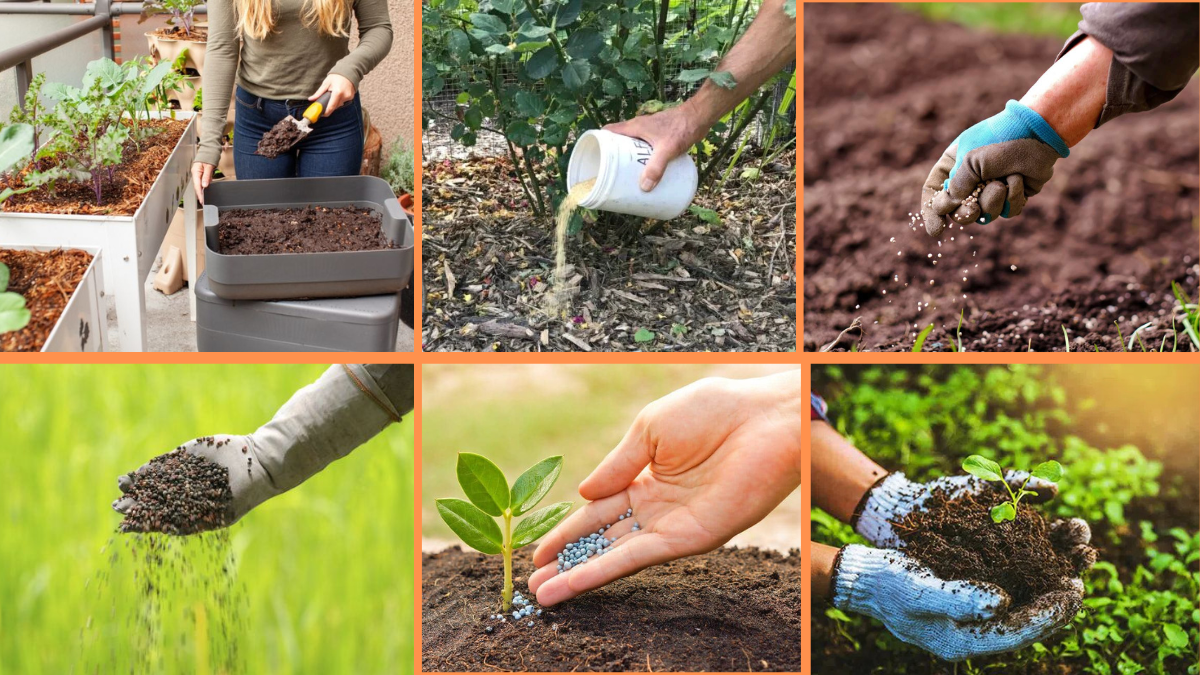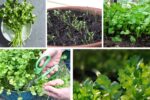Healthy, vibrant plants start with nourishing soil — and organic fertilizing is one of the best ways to support plant growth naturally while protecting the environment. Unlike synthetic fertilizers, organic options enrich the soil, improve its structure, and encourage a thriving ecosystem of beneficial microbes. Whether you’re tending a vegetable garden, houseplants, or ornamental flowers, learning how to fertilize organically ensures sustainable and long-lasting plant health.
In this article, we’ll cover 10 practical, effective, and easy-to-implement tips to fertilize your plants organically, no matter where or what you’re growing.
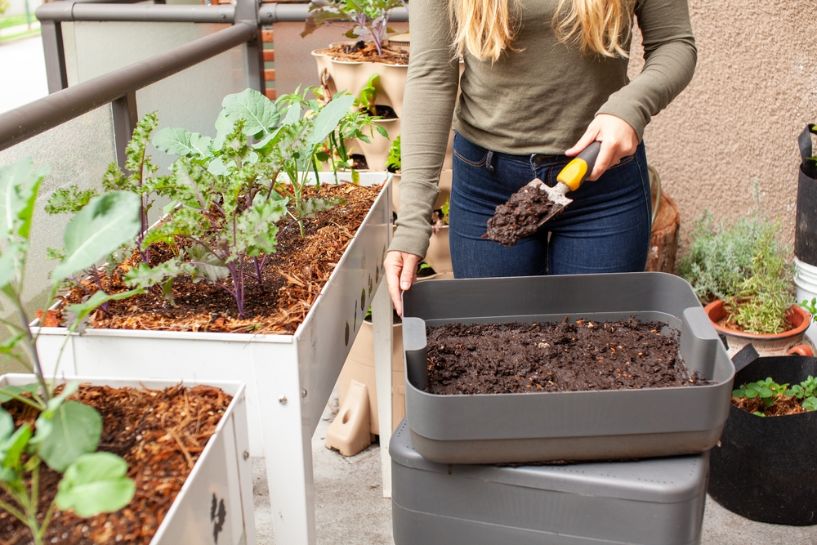
Why Choose Organic Fertilizers?
Before we jump into the tips, let’s quickly explore the benefits of organic fertilizing:
- Improves soil health by feeding beneficial microbes.
- Reduces chemical runoff into water systems.
- Provides slow-release nutrients for steady plant growth.
- Boosts plant resistance to pests and diseases.
- Supports sustainable gardening practices for long-term soil fertility.
Now, let’s get into how you can do this naturally and effectively.
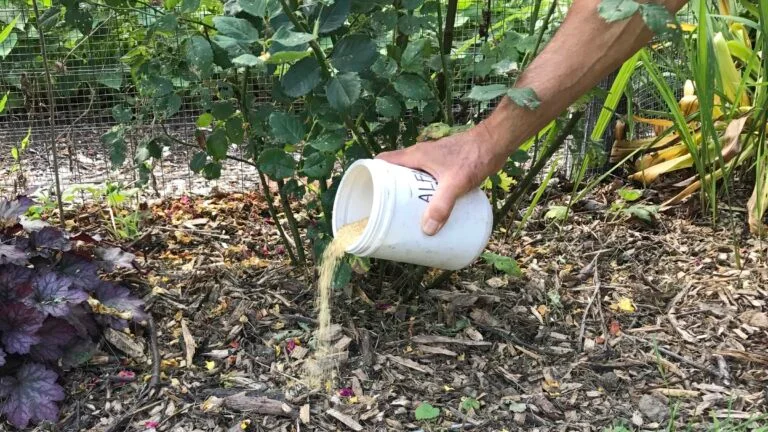
1. Start with Healthy, Organic Soil
Organic fertilizing is only as effective as the soil it supports. Healthy soil is rich in organic matter, alive with beneficial microorganisms, and has good texture and drainage.
How to build good soil:
- Regularly mix in organic compost.
- Use natural mulches like straw, leaves, or grass clippings.
- Avoid chemical soil amendments.
- Maintain proper pH levels suited to your plant types.
A nutrient-rich, well-aerated soil allows plants to better absorb the organic fertilizers you apply.
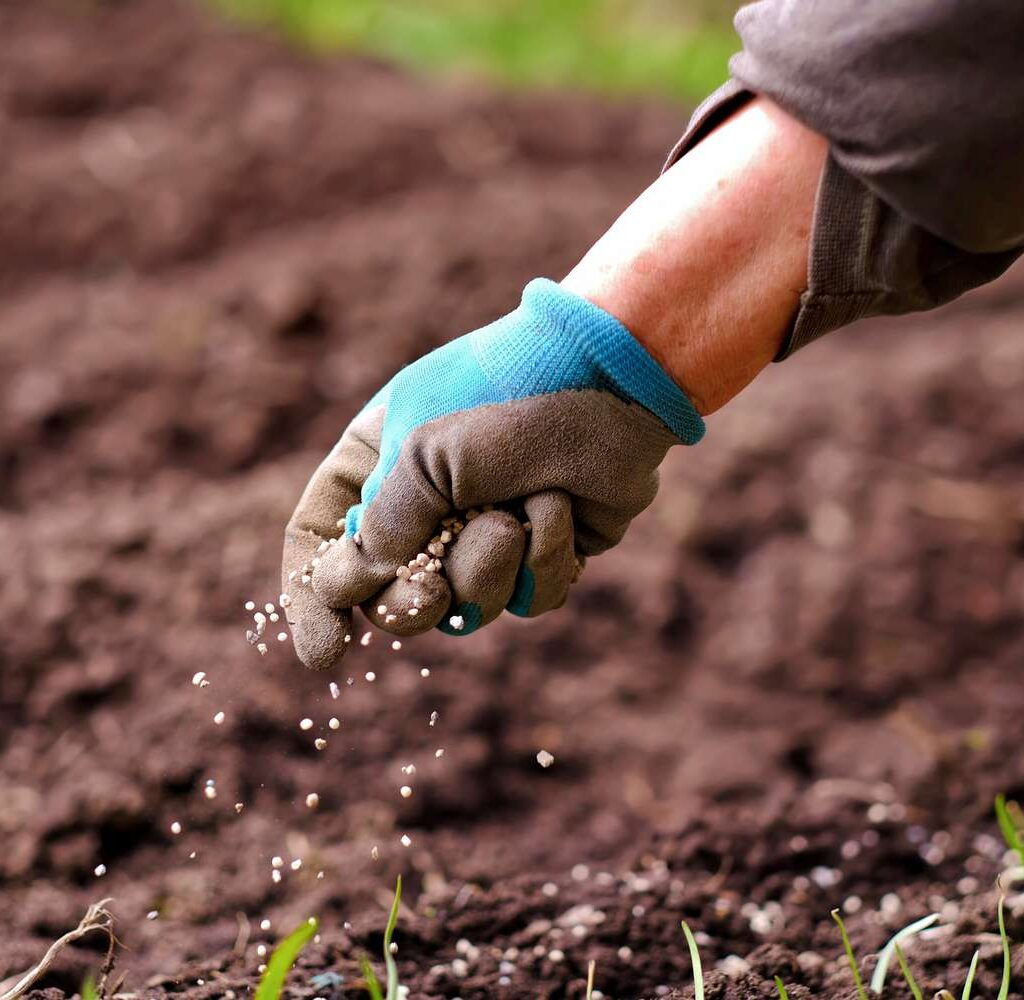
2. Use Homemade Compost
One of the most valuable organic fertilizers you can use is homemade compost. It recycles kitchen and garden waste into nutrient-packed humus that improves soil fertility and structure.
What to compost:
- Fruit and vegetable scraps
- Coffee grounds and filters
- Eggshells
- Leaves and grass clippings
- Plant trimmings
Avoid meat, dairy, oily foods, and pet waste. Compost can be used as a soil amendment or top dressing around plants, slowly releasing nutrients as it breaks down.
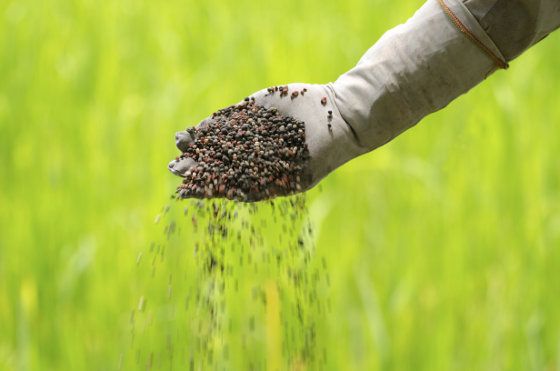
3. Apply Organic Liquid Fertilizers
For a quick nutrient boost, organic liquid fertilizers are ideal. They’re absorbed faster by plant roots and leaves, making them perfect for houseplants, vegetables, and flowering plants.
Popular organic liquid fertilizers:
- Compost tea: Made by steeping compost in water.
- Fish emulsion: High in nitrogen, ideal for leafy growth.
- Seaweed extract: Full of trace minerals, encourages root and flower development.
- Banana peel tea: Soak banana peels in water for potassium-rich plant water.
Apply these liquids every 2-4 weeks during the growing season for best results.

4. Use Aged Animal Manure
Aged manure from herbivorous animals (like cows, horses, chickens, or rabbits) is a fantastic organic fertilizer. It’s packed with nitrogen, phosphorus, and potassium, essential for plant growth.
Important tips:
- Use well-aged manure (at least 6 months old) to avoid burning plant roots.
- Apply in early spring or fall.
- Mix into soil or use as a mulch around established plants.
Avoid using fresh manure or manure from carnivorous animals.

5. Incorporate Green Manures and Cover Crops
Green manures, also known as cover crops, are plants grown specifically to improve soil fertility. When turned into the soil, they decompose and enrich it with nutrients and organic matter.
Examples of green manures:
- Clover
- Alfalfa
- Vetch
- Buckwheat
- Ryegrass
Plant these during off-seasons, then till them into the soil a few weeks before planting your main crops.
6. Try Natural Mineral Amendments
Some organic materials are naturally mineral-rich and can correct specific nutrient deficiencies in your soil.
Popular organic amendments:
- Bone meal: High in phosphorus, promotes flowering and root development.
- Blood meal: Rich in nitrogen, encourages lush leafy growth.
- Rock phosphate: A slow-release source of phosphorus.
- Greensand: Provides potassium and improves soil texture.
- Epsom salts: Supplies magnesium and sulfur for improved plant health.
Test your soil before adding minerals to avoid imbalances.
7. Practice Mulching with Organic Materials
Mulching is an underrated yet highly effective way to fertilize plants naturally. As organic mulch breaks down, it enriches the soil with nutrients while retaining moisture and suppressing weeds.
Great organic mulch options:
- Straw
- Shredded leaves
- Wood chips
- Grass clippings
- Pine needles
Apply mulch around the base of plants, keeping a small gap to prevent stem rot.
8. Rotate Crops and Use Companion Planting
Rotating crops and pairing plants with compatible companions can naturally manage soil fertility and plant health.
Benefits of crop rotation:
- Reduces soil nutrient depletion.
- Breaks pest and disease cycles.
- Allows different plant groups to contribute and extract varied nutrients.
Companion planting: Some plants enrich the soil for their neighbors. For example:
- Beans and peas: Fix nitrogen in the soil.
- Marigolds: Deter pests.
- Basil: Enhances the growth of tomatoes and peppers.
Smart garden planning reduces the need for extra fertilizers.
9. Create a Worm Composting Bin (Vermicomposting)
Worm composting, or vermicomposting, is one of the easiest ways to produce highly nutritious, organic fertilizer at home.
How it works:
- Red worms (like Eisenia fetida) consume kitchen scraps.
- They produce castings (worm poop) rich in nutrients and beneficial microbes.
- The resulting compost can be mixed into soil or used as top dressing.
You can even make worm tea by steeping worm castings in water for a potent liquid fertilizer.
10. Feed Plants Based on Their Growth Stage
Different plants — and even the same plant at different stages — require varying nutrients. Feeding plants appropriately ensures optimal growth without over-fertilizing.
Growth stage needs:
- Seedlings and leafy greens: Higher nitrogen for foliage.
- Flowering and fruiting plants: Boost in phosphorus and potassium.
- Dormant or off-season plants: Little to no fertilizing needed.
Adjust your organic fertilizers accordingly, whether compost tea, fish emulsion, or mineral amendments, for balanced plant nutrition.
Final Thoughts
Fertilizing plants organically isn’t just a healthier choice for your garden — it’s a meaningful way to care for the environment while cultivating vibrant, productive plants. By embracing composting, liquid organic fertilizers, mineral-rich amendments, and mindful garden practices, you can create nutrient-dense, thriving soil ecosystems.
Follow these 10 organic fertilizing tips, and you’ll soon notice greener leaves, brighter blooms, and healthier harvests — all while contributing to a more sustainable and natural gardening future.
